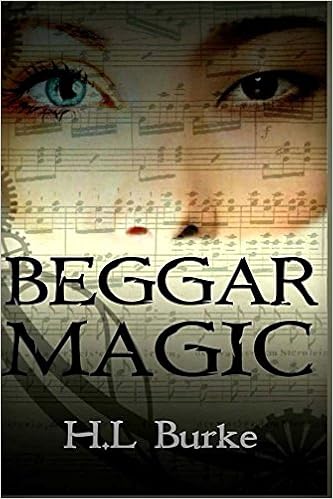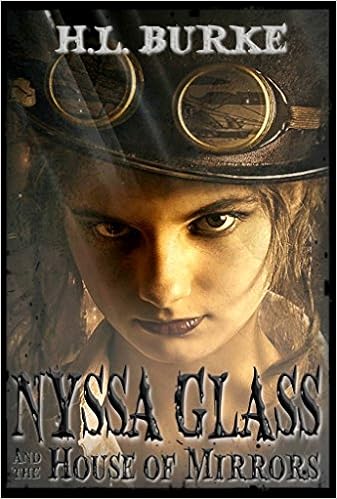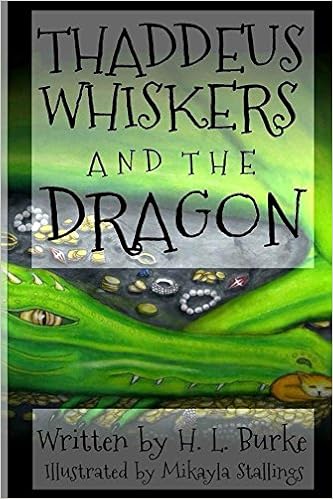Today's guest of honor is H.L. Burke, a native of Oregon, a military wife and mother to two lovely daughters, and an indie writer of YA fantasy. The covers of her novels will certainly catch your eye. Today she joins us for a stimulating discussion about the nature of "geekdom" and working timeless universal questions into her fantasy fiction.
_________________________
MJN: Tell me about your definition of "geek".
You mention having an addictive personality and jumping from one fandom to
another, yet the fandoms you become obsessed with are fairly prominent and mainstream.
So you probably have many fellow fans who share your obsessions. I always
thought that a true geek is someone who cares about a fandom that is
totally obscure.
HLB: To me that would be more a definition of “hipster”
than “true geek.” I honestly find the term “true geek” to be problematic, like
we're trying to deny people access to our special club because they aren't as
special as we are. That's not what being a geek should be about. We should be
welcoming to people who are just getting started on their fandom experience. We
should be like, “Oh, you like this? Well, then you'd probably like THIS too!”
and introduce them to perhaps the more obscure elements of fandom. Not “Oh,
you're just a poser who only likes this stuff because it's now popular.”
I think the “true geek” idea comes from a desire to feel “special”. I even have been subject to it. When I first got into Lord of the Rings, it wasn't very mainstream. Sure, as Fantasy went, it was more well known, but pre-movies, it wasn't the sort of thing I could expect average people to have extensive knowledge of. I'd go online with my pitiful dial up connection and discuss it on forums with other fans who liked to analyze not just The Lord the Rings but the Silmarillion and Unfinished Tales. It was like this super secret club. Then 2001 rolls around and suddenly our little forum was flooded with a bunch of users named “IheartOrlando” and who had no idea who Tom Bombadil was. I admit, for a bit, I was annoyed. The TRUE FANS read the books … but you know what? In a few years, those who weren't “true fans” moved on to change their focus from Legolas to Will Turner, and it didn't really matter … and a lot of the fan girls who just read the books because “Omgosh, Orlando is hot!” realized that the books were awesome and they dove deeper into the lore and became “true fans.”
I like Simon Pegg's definition. Being a Geek means not having to “play it cool,” being honestly passionate about what you like. Like a casual fan might like Star Wars, but a geek will be passionate about Star Wars, learning the lore, having opinions on which bits of the expanded universe should be canon, about who directs future movies … being a geek isn't about which things get a “stamp of approval” by some “fandom council in the sky.” It's about loving something enough that you aren't afraid what others think.
MJN: Self-publishing has come a long way in the past decade. More and more authors with a track record in traditional or third-party publishing embrace that model. Some of the covers I have seen on self-published novels are catchier, slicker and more professional than those put together by in-house designers. Tell me about the cover artist you have used. Do you think it's important for the cover artist to have read the novel?
HLB: It's cool if the cover designer can read the book first, but I don't think it is necessary. I actually contracted the cover for Call of the Waters before the book was even finished. I knew I wanted an image of the main character floating in water. I knew what the main character looked like. I gave those specifications to the artist, and she painted an image.
When I first started out, I had no money for publishing. I had to do everything myself or find a way to trade for it. So with my first release, Dragon's Curse, I was scribbling concepts for covers, trying to figure out how to make them work, and I posted them on my personal Facebook page. A friend from my Lord of the Rings forum days (I have a lot of friends I only know online because we used to talk Tolkien together) said, “That's a cool concept. I have been working on my graphic design skills. Can I try and make something with it?”
I had no idea she even had an interest in graphic design, but she took my image and made something a lot more professional looking. She gave me the first few covers free, then eventually we agreed on a pricing system, and she's been doing my covers ever since. She doesn't have a website set up yet, and I believe I'm her only client, but her name is Jennifer White, and I can get people her email address. She doesn't do artwork, though, so if I need something like a painting, I've contracted that out to a couple of artists I've met online. I've used Mythspinner Studios a few times. Jennefer (with an e) Rogers does good work and is very quick and professional.
MJN: I am entranced by the cover for Beggar Magic. It awakens the dichotomy of the fantasy world you created, and also mirrors the dichotomy of the world we live in now. It's on my to-read list. The plot summary echoes of The Prince and the Pauper, a story of unlikely friendship between two innocents from opposing social circles. Do you think that such unlikely friendships happen in real life? Or is it wishful thinking to believe that people from different worlds can overcome the socioeconomic divide?
HLB: I can only speak from my own experience, but if you treat everyone with respect, you can end up being friends with just about anyone. Kids don't have the baggage adults have. They're generally more trusting, not worrying about things that might hold adults back from talking to strangers. They'll just run up to anyone who appears to be roughly their age and ask if they want to play, so it is more likely to happen between kids. In Beggar Magic the two halves of the society have sequestered themselves to the point where the kids don't interact, and Leilani stumbling upon Zebedy lost in the forest is sort of an intervention of fate. The two girls probably never would've met if both weren't in the habit of wandering on their own. When they do meet, though, Zebedy doesn't even see their social differences as a problem. They both love the Strains (the magical system of their world). They're both about the same age. Of course they'll be friends in her mind. With kids that's really all it takes. I think that's reflective of how young people are in the real world. Some people manage to bring that child like acceptance along with them into adulthood.
MJN: I'm a huge cat lady myself, so I was also intrigued by Thaddeus Whiskers, the story of a kitten who is spellbound to never become a grown cat. One would immediately think of Peter Pan, the boy who would "never grow up", but Thaddeus' plight is quite different. I am a persona non-grata in most "mommy groups", but I've heard some women express that desire that their children would stay babies forever. Those statements always disturbed me deeply. I didn't realize it was such a common fantasy.
HLB: I think that's something a lot of moms say because it sounds “cute” but that they don't mean literally. Like, “You're so cute, I want to eat you up.” Hopefully they don't mean that literally either … and maybe because of the fear of time going too fast so you miss out on truly enjoying it.
With Thaddeus, the court wizard is always trying to “improve” upon him to make him an “even more perfect” pet for the princess who is honestly quite satisfied with Thaddeus as he is, which in turn leads to some unintended consequences which force Thaddeus to grow up mentally even though the poor thing is stuck as tiny for the entire book. It's more of a jab at parents/guardians who don't really listen to what kids want. There's a running theme that Princess Clarice just wants her kitten back but the grownups in her life keep trying to placate her with other things she doesn't really want. There's an innate frustration to being a child and being constantly misunderstood by well-meaning people, either because you can't quite express what you want or because Mommy insists she knows best … and sometimes Mommy does know best, but a child can relate to people making choices for them and feeling out of control of their own life … both Clarice and Thaddeus have a lot of “other people making choices for them” that end up being less than ideal.
MJN: The House of Mirrors has a distinct steampunk feel, even though it's set outside of the era one would associate with steampunk - late Victorian age. There is a similar sub-genre called gaslight. Is there a room for expansion within the steampunk/gaslight genre? Can you list any authors who have introduced new elements into the tradition to keep it dynamic?
HLB: Nyssa is set in an alternate world. There's a little joke in there that the setting is called “New Taured” which refers to an incident some people use to argue that there are parallel worlds/dimensions that sometimes cross into ours (if you Google “Taured” you'll get the whole story. It's kind of cool), so the time frame is vague and the technology has a lot of anachronisms. I'm a terrible rebel, though, and I often write a book and then cram it into a genre/subgenre when it comes time for marketing. It's one reason I stay away from more formulaic genres, because I know I wouldn't be able to stop myself from breaking all the rules (I'm the reason we can't have nice things.).
To me, every genre should have room for expansion, otherwise it will be boring. One book that messes with expectations a bit is Dream Eater's Carnival by Leslie Anderson and David T. Allen. It's vaguely Steampunk, but there is stuff about soul stealing, alchemy, and other interesting elements … then there is Romulus Buckle and the City of the Founders (author Richard Preston, Jr.) which places Steampunk tech and characters in a post-apocalyptic US (with aliens).




No comments:
Post a Comment